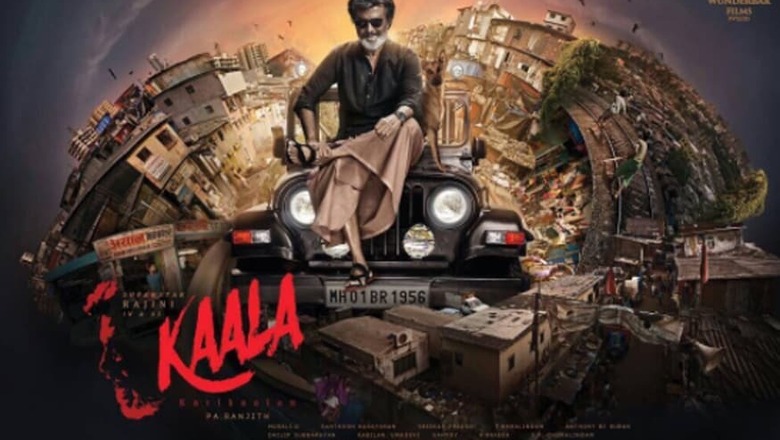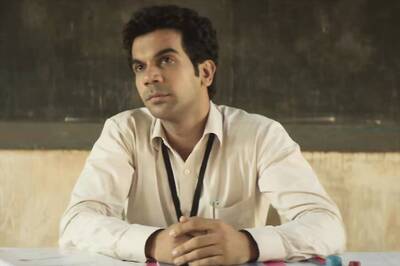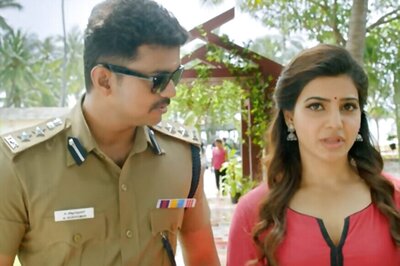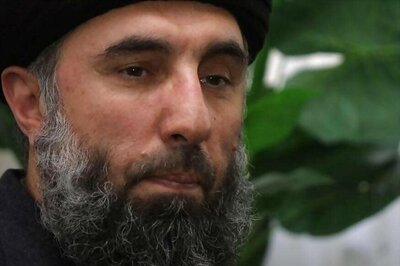
views
Kaala, Rajinikanth’s first film since his political debut, hit the screens on Thursday under a cloud of controversy over its Karnataka release and recent statements by the superstar on Tuticorin violence.
Kaala marks the second collaboration between Rajinikanth and director Pa Ranjith, after the success of their first outing Kabali.
Kaala tells the story of a man who runs away from Tirunelveli in Tamil Nadu and goes on to become a powerful don in the slums of Dharavi. The makers, and Rajinikanth himself has reiterated time and again that Kaala is a commercial entertainer. However, given the fact that Rajinikanth has announced his entry into politics, one cannot help but pay close attention to the concept and dialogues of his films.
Ever since the film’s first look was revealed, audiences have pointed out the Ambedkar connect in the film. The poster had Rajinikanth sitting on a jeep with his usual swag and wicked smile. However, the jeep’s number is what grabbed a lot of eyeballs: MH 01 BR 1956. 1956 was when BR Ambedkar, the architect of the Indian Constitution converted to Buddhism.
Dr. Ambedkar spent his life fighting against social discrimination and organized masses for their upliftment. Pa Ranjith has time and again brought in similar narratives in his films, be it Attakathi, Madras, or Kabali. The teaser of Kaala begins with a chorus of voices saying “we will fight”. This puts the film in the context of people’s struggle against oppression.
The teaser plays around with the idea of black (dirt) versus white (pure) while pitting Rajinikanth against Nana Patekar. Using words like ‘clean’, ‘pure’, and ‘dirt’, Pa Ranjith has hinted at the possibility of the film being loaded with politically significant messages. Ranjith has given us an anti-hero who wears white and talks of cleaning the country, and a hero who dons black and is proud of the ‘dirt’ surrounding his house.
Kaala is a politically significant film for Rajinikanth when we look at all that he has spoken of recently: the anti-sterlite protest and the Cauvery issue. Whether we consider Kaala to be a political or commercial film, these ideas will have a significant impact on Rajinikanth’s political career as he goes forward.
However, Rajinikanth’s recent statement on the anti-sterlite protest indicates that there is a strong difference between the reel and real life Rajinikanth. “If you protest against anything and everything, Tamil Nadu will turn into a graveyard,” said an angry Rajini as he spoke of the unrest in Tuticorin. This statement indicates that Kaala is more of a Pa Ranjith film than Rajinikanth.
The film has run into trouble just days before its release. A Mumbai-based journalist has sought Rs 100 crore in a defamation case. He claims that the film is based on his father who was a godfather-like figure in Dharavi. In addition, the film has also been banned in the state of Karnataka over the Cauvery issue.
Kaala teaser ended with two very important words: Katravai, Patravai meaning ‘Educate, Agitate’. These words are part of Dr. BR Ambedkar’s commandment i.e. ‘Educate, Agitate, Organise’.
Kabali told the story of a Malaysian don who wanted to educate people to change their way of life. Kaala seems to be a film which focuses on the idea of ‘agitate’. The important question is: are we going to see another Ranjith-Rajinikanth film on ‘organise’?




















Comments
0 comment